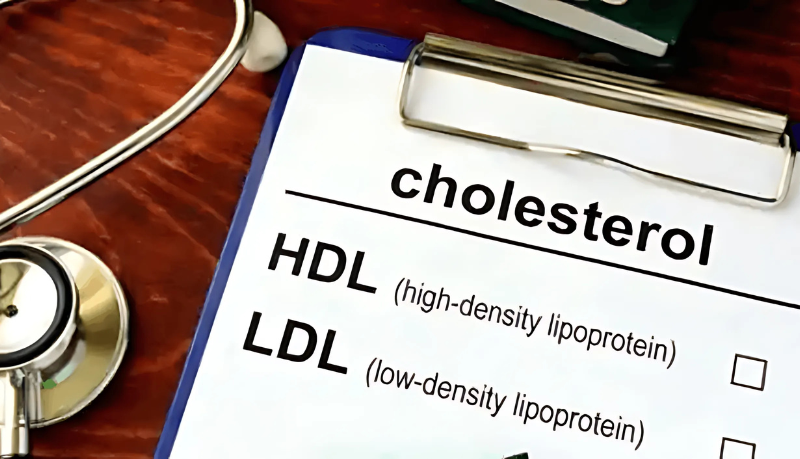
The proportionality of cholesterol level and healthy life is quite obvious. We have to make a balance between the daily calories we need vary by our age, metabolism of our body, and the amount of physical activity and workout we are doing in our daily life.
The necessary daily calorie requirement for women is 2,000 calories and for men 2,500 calories per day. Too much cholesterol in our body causes plaque in our blood plaque hinders the flow of blood inside the coronary arteries. The proper functionality of the coronary arteries is vital as they provide oxygenated rich blood to the heart muscles. The plaque is made up of fats, cholesterol, calcium, and other substances in the blood. When plaque quantity increases to a certain level, it also hampers blood flow to the heart’s chambers, which can be a cause of heart attack, unexpected cardiac death, and stroke.
The Functionality of Cholesterol
Cholesterol is a waxy material found in your blood. Your body needs cholesterol to build healthy cells, but high levels of cholesterol can increase your risk of heart disease.

To build new cells Cholesterol is needed to a certain extent, it’s a waxy material but too much cholesterol can increase your chance of devolving heart disease. With elevated cholesterol, you can develop fatty deposits in your blood vessels. Ultimately, these deposits grow, making it difficult for enough blood to flow through your arteries. Sometimes, those deposits can break suddenly and form a clot that causes a heart attack or stroke.
What is Cholesterol
Cholesterol is a combination of proteins and fat is called a lipoprotein. There are different types of cholesterol, based on what the lipoprotein carries.
They are two types of Cholesterol:

Low-density lipoprotein (LDL)
LDL means the low density of lipoprotein that contains excessive fat and less amount of protein. This type of cholesterol is” bad” cholesterol, it takes cholesterol particles throughout your body. LDL cholesterol builds up in the walls of your arteries, making them hard and narrow. This causes plaque in your arteries so oxygenated blood not transported throughout your body.
High-density lipoprotein (HDL)
HDL means cholesterol has more proportionality of protein in it. It’s “good” cholesterol. It picks up excess cholesterol and takes it back to your liver.
Factors such as inactivity obesity and the abundance of processed food contribute to a high level of cholesterol and low production of HDL. Issues away from your control might play a role, too. For example, your hereditary makeup might keep cells from removing LDL cholesterol from your blood proficiently or cause your liver to produce too much cholesterol.
Diseases Connected to Cholesterol
There are some common diseases connected to Cholesterol:
- Cholesterol and Coronary Heart Disease
- Cholesterol and Stroke
- Cholesterol and Peripheral Vascular Disease
- Cholesterol and Diabetes
- Cholesterol and High Blood Pressure
Risk factors related to high Chelosstrol
There are multiple factors that can cause Cholesterol Problem:
Eat more healthy food choices
Adopt more healthy habits into your life; consume a healthy diet rich in fruits, vegetables, and whole grains to help shield your heart. Try to eat beans, while reducing the use of dairy products, and meats. Keep away from too much salt and sugars in your diet. Eat many vegetables and salads as you can when you are choosing your vegetables, keep color in mind. A multicolored plate with plenty of red, orange, yellow, and dark-green vegetables facilitate that you are getting the vitamins and minerals essential for your health.

Minimize Your Intake of Processed Foods
Minimizing your intake of processed food to improve your health is to reduce your chances of getting a heart attack. The processed foods are linked to all sorts of health problems, including heart disease, obesity, and diabetes.
Quit smoking addiction
Smoking contributes to many fatal diseases like heart disease, emphysema, cancer of the lungs, breast, prostate, and digestive tract. One recent study showed that smoking is strongly linked with developing risk of heart disease, especially heavy smokers. By quitting smoking has shown a reduced risk of heart attack over time.

Exercise regularly
You should try to increase your physical activity daily, performing physical activities may help you to prevent heart attack and the flow of blood becomes maintained. By increasing your physical activity you are also reducing the cholesterol level of your body.

Obesity and overweight
Regularly calculate your weight by using a BMI calculator. If it is too much overweight then increase your physical activity and reduce intake of fatty food.
Age and ability to absorb Chelostrol
Your age can cause an increased quantity of cholesterol. The chemistry of the body changes with the passage of your risk. The capability of absorbing blood cholesterol reduces, so take more and more fiber-enriched food with the passage of your age. Cholesterol climbs.
Diabetes and LDL Cholesterol
A high sugar level causes a higher level of LDL cholesterol. Elevated blood sugar contributes to higher levels of unsafe cholesterol called very-low-density lipoprotein (VLDL) and lower HDL cholesterol. Towering blood sugar also damages the lining of your arteries.
How you can prevention
The similar heart-healthy way of life changes that can lower your cholesterol can help stop you from having high cholesterol in the first place. To help prevent high cholesterol, you can:
- Eat a diet that emphasizes fruits, vegetables, and whole grains
- Eat low salty food
- Limit the number of animal fats
- Use good fats in moderation
- Maintain your body weight and maintain a healthy weight
- Quit smoking it reduces the flow of your blood
- Exercise at least half an hour daily
- Manage stress
